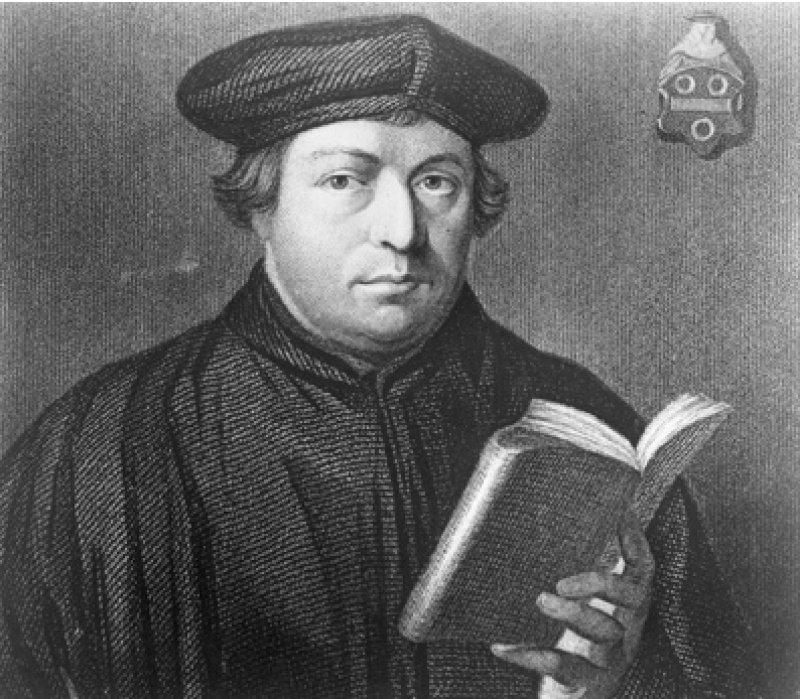

Thesis 6.
The works of God (we speak of those which he does through man) are thus not merits, as though they were sinless.
"In Eccles. 7:20, we read, 'Surely there is not a righteous man on earth who does good and never sins.' In this connection, however, some people say that the righteous man indeed sins, but not when he does good. They may be refuted in the following manner: If that is what this verse wants to say, why waste so many words? Or does the Holy Spirit like to indulge in loquacious and foolish babble? For this meaning would then be adequately expressed by the following: 'There is not a righteous man on earth who does not sin.' Why does he add 'who does good,' as if another person were righteous who did evil? For no one except a righteous man does good. Where, however, he speaks of sins outside the realm of good works he speaks thus (Prov. 24:16), 'The righteous man falls seven times a day.' Here he does not say: A righteous man falls seven times a day when he does good. This is a comparison: If someone cuts with a rusty and rough hatchet, even though the worker is a good craftsman, the hatchet leaves bad, jagged, and ugly gashes. So it is when God works through us." (LW 31, 45)
Luther here proposes the difficult concept that the works of God through man are not without sin. In other words, even those works that God does in us are not accounted as "eternal merits" because they are supposedly without sin. None of our works, not even those done in us by God, are without sin.
Luther quoted Ecclesiastes 7:20 to prove his thesis: "Surely there is not a righteous man on earth who does good and never sins." Some would want to interpret the passage to say that a righteous man may indeed sin, but not when he is doing good. Luther dismisses that interpretation by claiming that had the Holy Spirit meant it be interpreted in that manner, it would have been said much simpler: "There is not a righteous man on earth who does not sin."
Therefore, the passage should be taken to mean that even the good deeds done by righteous individuals through God are not without sin.
Luther here likens the believer to a flawed tool in the hands of a perfect God. Even though God uses us as His tool, our sinfulness still remains in us. Thus we are to look to God and not to ourselves, even in those works that He accomplishes through us.
Thesis 6 has something to do with simul iustus et peccator (the righteous are simultaneously sinners), a fundamental tenet of Luther's doctrine of sin and grace. Luther's doctrine is meant to explain the existence of sin in Christians.
Luther strongly reproaches Christians who have complacent and irresponsible life styles with an attitude of arrogance believing that they have no sin because they were baptized.
"people who are baptized or have received absolution think that they are at once without any sin; they become secure in the feeling that they have obtained righteousness and they do nothing because they are not conscious of any sin"(Luther: Lecture on Romans" in the Library of Christian Classics, p, 212).
Luther affirms that Christians, after they are baptized, should fight against sin with desperation. The righteousness of God does not make a sinner righteous but justifies a sinner righteous. It was exactly what Luther said for simul iustus et peccator. Luther elaborates by saying:
"The saints in being righteous are at the same time sinners; they are righteous because they believe in Christ whose righteousness covers them and is imputed to them, but they are sinners because they do not fulfill the law and are not without sinful desires"(Above book, p, 208)
Luther argued that the belief that Christians are righteous is not because they are perfect and faultless, but because our spiritual attitude sets the focus on God, not to ourselves.
Thus Luther argued that "for if we do not earnestly endeavor to struggle against sin, we already have it, even though we have ceased to commit any sin for which we could be condemned."(Above book, p, 212). We have to remember that the life of a Christian is not one that is called to a life of ease, but one that it called to labor against our passions.

Reverend and Doctor Jin O Jeong is an assistant pastor for the Korean congregation at Zion Lutheran Church, Belleville, IL. He graduated from Luther University and received a Ph.D from Yonsei University. He was also a Research Fellow at Hebrew University and Visiting Scholar at Yale Divinity School. Tel: 618-920-9311 Email : jjeong@zionbelleville.org



















